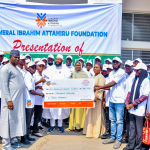The Commonwealth scholarship is one of the largest and most prestigious scholarships for students from developing countries in the world. The scholarship has been awarded annually since its inception in 1959 and has awarded scholarships and fellowships to over 35,000 individuals. The scholarship awards over 900 fully funded scholarships and fellowships for postgraduate study and professional development to common wealth citizens each year. The scholarship covers tuition fees, accommodation, visa and travels, feeding allowance and other allowances. This is as good as it gets with scholarships.
It might interest you to know that the Commonwealth scholarship has different categories. The UK’s Commonwealth Scholarship commission which is in charge of awarding the commonwealth scholarship offers a total of 8 scholarships and fellowships to citizens of commonwealth countries:
- Commonwealth Professional Fellowships
- Commonwealth PhD Scholarships (for least developed countries and fragile states)
- Commonwealth Split-site Scholarships (for low and middle income countries)
- Commonwealth Master’s Scholarships
- Commonwealth Shared Scholarships
- Commonwealth Distance Learning Scholarships
- Commonwealth Rutherford Fellowships
- Commonwealth Medical Fellowships (NOW OPEN)
If you are planning on applying for the Commonwealth scholarship, this post is for you. You will learn practical tips to apply for commonwealth scholarship to significantly increase your chance of winning.
If you are new to these posts, welcome. We aim for all-round education of young Africans. Consider joining 20000+ others in subscribing to AfterSchoolAfrica on Youtube to continue exploring opportunities and watching videos like this one below:
How to Win the Chevening Scholarship – Step by Step Tutorial
First things first, are you eligible for the commonwealth scholarship?
How do you know if you have met the prerequisite to apply? This information can be found on the CSC website but we’ll give you a quick rundown of some of the eligibility requirement. To be eligible you must be a citizen or permanent resident of a Commonwealth country. You will still be eligible if you are a refugee or British protected person. You also need to have an undergraduate honours degree of at least upper second class (2:1). If you wish to study a PhD, you will need an appropriate Master’s degree too. You must be unable to afford to study in the UK without the scholarship. Meeting all these criteria is key to earning the scholarship. All subjects’ areas are eligible to apply for the scholarship; however, priority will be given to applications that demonstrate strong relevance to development of the applicant’s home country. Masters programme is 12 months while PhD is 36 months.
For the Commonwealth scholarships there are three criteria for which applications are considered. These criteria and how you respond to each of them will determine whether you become a commonwealth scholar. The first criterion is the Academic merit of the candidate. This is usually the same for most scholarship scheme. To be eligible for the Commonwealth scholarship you must have stellar academic results from your first degree. The minimum threshold for academic qualification is a 2:1. This means you will likely get competition from a lot of first-class candidates. If you are still in school and thinking of applying for the commonwealth scholarship do well to build a strong CGPA before you graduate.
The second criterion is the quality of the plan of study. The course you want to study, how relevant is it to modern day challenges and what solutions if any can they offer? Remember the goal of the commonwealth scholars is to train individuals who on return to their home countries can be agents of change and development. It is the reason why the scholarship is basically tailored to individuals from developing countries. The course you are applying to study has to reflect this quality.
ALSO WATCH: How to Apply: New Zealand Development Scholarship for African/Developing Countries
Thirdly, the scholarship board wants to know about the potential impact of your course of study on your home country. An individual from a country that is mostly into agriculture applying to study agricultural engineering so as to device new means of creating high yielding species of seedling will likely get the scholarship over another individual from the same country applying to study computer science just for the sake of it. The bottom line for the commonwealth scholarship is, “If we help you, how can you help your country”. Now that you know all they want in your application, here are tips for applying.
Table of Contents
1. Choose the right scholarship
First thing, you need to do proper research and know which of the commonwealth scholarships to apply for. You need to understand that there are different forms of Commonwealth Scholarship awards. Currently there are 7 kinds of Commonwealth Scholarships and Fellowships. So it is your duty to carefully research into which of the scholarships you are eligible for and fits your career goals. For instance if you are seeking for a Masters scholarship you should apply for the Commonwealth Master’s Scholarship (General) and Commonwealth Shared Scholarship because they are scholarships for Master’s degree programmes. Similarly you should also research into each of the nominating agencies and the peculiar requirements for each of them. You could also look up information on the Commonwealth scholarship website including After School Africa website for other information.
PRESS PLAY: Top 10 PhD Scholarships for International Students
2. Apply through the nominating bodies for your country
There are designated nominating bodies in each county through which applicants can apply. The bodies could be National Nominating bodies or selected non-governmental organizations and charitable bodies. Your application must be made through these bodies as you are not allowed to directly apply to the commonwealth. Each nominating bodies may have their own rules and eligibility criteria for applying that is specific to them. In Nigeria for instance the Federal Scholarship Board is the nominating board and they require that applicants must have completed their national youth service and also provide medical fitness certificate.
3. Get a previous scholar to mentor you
There’s no harm in this. There is a first time for everything and first times are usually prone to error. Feel free to get a previous scholar to guide you on the process. Beneficiaries of other scholarships, not of the Commonwealth fold could also guide you on how to write better applications. You could also get their applications and compare with yours; this way you can edit and proofread your application for better influence on the judges.
4. Carefully answer your essay questions especially as it benefits home country
The aim of most scholarships devoted to developing countries is to train students who on their return can benefit their native country. You need to let your nominating agency and the Commonwealth Scholarship Commission realize what impact you aim to achieve on your home country if offered the scholarship. You should provide facts about a specific problem in your home country which you intend to solve and how you intend to do that. This is very important. You can do this by providing realistic measures you intend to take to solve the problem using knowledge and skills gathered from studying in the UK and even how you intend to measure your results from time to time. The Commonwealth Scholarship Commission takes this particular essay in high esteem. And this is where most applicants, especially First Class holders, miss it. They wrongly believe that having a First Class is the major ticket for getting the Commonwealth Scholarship. Even with a Second Class in your first degree, you can win the scholarship if you present a perfect overall application.
10 Steps to Write a Winning Scholarship Essay
5. Your Personal statement should be … Personal
This is not the place to remind the committee that you bagged a first class or that you are a genius. No! The personal statement is supposed to show your human side; the things about you that cannot be found on a CV or a result. Make sure that your goals are clear to the reader. Organizations award scholarships to invest in a student’s future. Why should they invest in yours? Convince them that winning this scholarship will help you achieve your education and career goals. Instead of writing that you are a highly motivated individual, describe to the readers what that means. Give examples of a time that your motivation helped you achieve something great. Give yourself enough time to write your personal statement, avoid errors and grammatical blunders.
6. Your entire application should be coherent
There have to be an interconnection between the various segments of your application. Your entire application should be targeted at proving that you have the capacity of influencing positive social change using skills and knowledge acquired in the UK upon return to your home country. Each segment of the application should be in tandem with your overall goal. Even if you are applying for a field different from what you studied in your first degree, you can join professional bodies in the new field or take some short courses to prove knowledge in the new field.
After you have done you best to produce your best application. Submit and hope for the best. I hope these tips help you prepare in winning application for the Commonwealth Scholarship. Let us know your thoughts. Have you won the commonwealth scholarship in the past? Feel free to share your experience in the comment section. Remember to share this video with friends and give it a thumb up. If you are yet to subscribe to the After School Africa channel, now is a good time to hit the subscribe button. Until next time, YOUR SUCCESS MATTERS!









